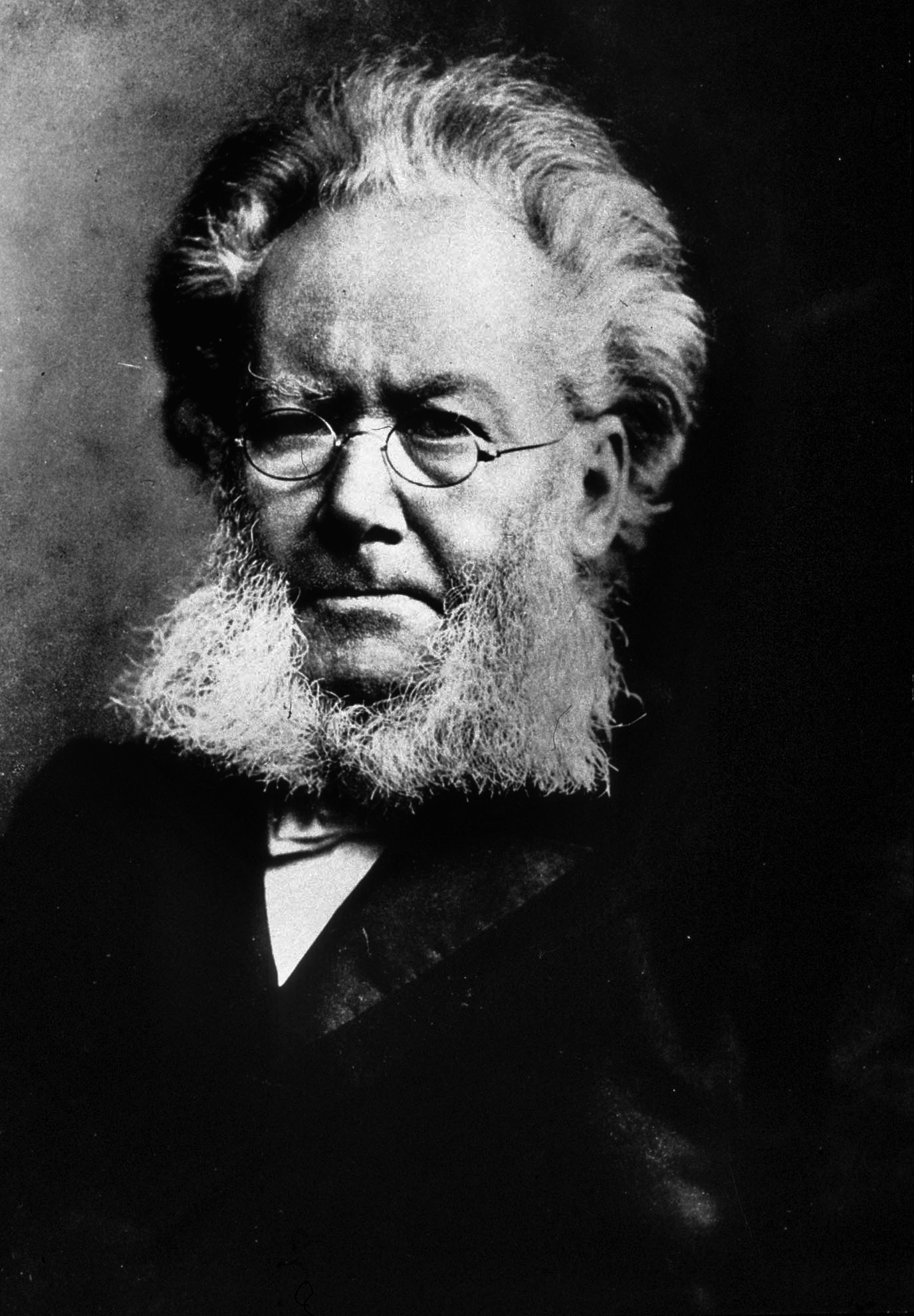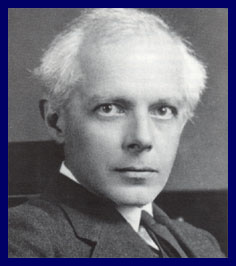

|
love is a place love is a place yes is a world |
1 March 2008 |
||
|
Step back, and back To appreciate actively the world’s perfection, it is necessary to cultivate a perspective outside of time. ~ Josh Mitteldorf |
2 March 2008
|
||
|
Falling risk of dementia A study to be published in the journal Alzheimer’s and Dementia concludes that the prevalence of dementia in people over 69 fell from 12.2% in 1993 to 8.7% a decade later. For a broad range of reasons, people are living longer and healthier lives. Like heart disease and cancer, Alzheimer’s disease is appearing later. This most recent study is consistent with other data showing an increase in health span of 2½ year in just a decade. In other words, with every four years that pass, we are granted an additional one year of healthy life expectancy. Article in Med Pages Today
includes interview with author Kenneth Langa of UMich |
3 March 2008
|
||
|
The persistent elusiveness of psi “For twenty-five years I have been in touch with the literature of psychical research, and have had acquaintance with numerous ‘researchers’. I have also spent a good many hours…in witnessing (or trying to witness) phenomena. Yet I am theoretically no ‘further’ than I was at the beginning; and I confess that at times I have been tempted to believe that the Creator has eternally intended this department of nature to remain baffling, to prompt our curiosities and hopes and suspicions all in equal measure, so that, although ghosts and clairvoyances, and raps and messages from spirits, are always seeming to exist and can never be fully explained away, they also can never be susceptible to corroboration.” William James, Final Impressions of a Psychical Researcher, The American Magazine, Oct, 1909 Psi will not lie down and die; neither will it stand up and be counted. After 28 years applying the methodology of physics to psychical research, Princeton Professor Robert Jahn concluded the same thing. In each of his experiments, there were anomalies that could not be explained as experimental artifacts or statistical outliers, but grand patterns continued to elude him. “The greatest reward is that we have stimulated others to continue the research and interest,” Jahn said. |
4 March 2008 |
||
|
‘Amateur’, from the Latin, ‘one who loves’ My father, born this day in 1921, worked his way through college playing cello in a string quartet. He played alongside musicians who later had celebrated careers in major orchestras, but my father chose to make his living as a businessman and enjoy his cello as an amateur. Professional music is about performance; amateur music is about expression. Passion and sincerity are foremost; virtuosity may appear as support. If I am describing to you an idea about which I feel passionately, you will appreciate my enthusiasm, try to understand my thoughts. If I stumble on a few words or make a grammatical error, you may not even notice. It is this freedom to take risks and make mistakes which is cherished by true amateurs. Chamber music is the highest art for the musical amateur, because of the intimate give and take in a small music ensemble. We listen and we create, and the listening becomes the creation as sounds meld together. No passive audience could understand or appreciate what we are doing as well as a colleague in music-making. |
5 March 2008 |
||
|
Yoga exercises to clear the mind Ideally, our attention should be free to respond to new situations and to work on subjects of our own choosing. Too often, we get caught in obsessive patterns of attention, worrying about something (often beyond our control) or fixing on an object of anger, desire or romantic love. Here are three yoga exercises that some people find helpful in restoring freedom and flexibility to the attention:
Extra credit: Try moving eyes rapidly back and forth in sync with kapabhati breathing while standing on one foot. |
6 March 2008
|
||
|
Paysage
Je veux, pour composer chastement mes églogues, II est doux, à travers les brumes, de voir naître ~ Charles Baudelaire (1857) Landscape I would, to compose my eclogues chastely, It is sweet, through the mist, to see the stars ~tr William Aggeler (1954) |
7 March 2008 |
||
|
“The rule of joy and the law of duty seem to me all one.” Oliver Wendell Holmes, Jr, born this day in 1841, was a scholar and philosopher who happened to sit on the Supreme Court. “I say unto you in all sadness of conviction that to think great thoughts you must be heroes as well as idealists. Only when you have worked alone / when you have felt around you a black gulf of solitude more isolating than that which surrounds the dying man, and in hope and despair have trusted to your own unshaken will / then only can you gain the secret isolated joy of the thinker, who knows that a hundred years after he is dead and forgotten men who have never heard of him will be moving to the measure of his thought / the subtle rapture of postponed power, which the world knows not because it has no external trappings, but which to his prophetic vision is more real than that which commands an army. And if this joy should not be yours, still it is only thus you can know that you have done what lay in you to do / can say that you have lived, and be ready for the end.” |
8 March 2008 |
||
|
“I think, therefore I am an autonomous agent.” I know this from direct experience. My culture reinforces this perspective, holding me responsible for my actions. It is more than a belief or even a known fact; it is a foundation of all that I believe and all that I do. But there are broad hints from the objective world that ‘direct experience’ is not so reliable.
‘I ’ am dispersed in space and time. Some of the thoughts that appear in my head come from sources that are not physically connected to me. I am not aware why I do most of what I do, and, worse, I deceive myself about my motivations. Free will is illusion, at least in part, perhaps altogether.
If I am not an autonomous agent… — Josh Mitteldorf |
9 March 2008 |
||
|
Science, writ large ‘Consciousness is just a massive amount of information being
exchanged by trillions of brain cells. If you can precisely model
that information, then I don’t know why you wouldn’t be able to
generate a conscious mind.’ Whether this is true is one of the greatest scientific questions of all time. Most scientists and philosophers just assume it must be true. A minority says that quantum coherence or mysticism or something else we don’t understand is also essential for consciousness. We can argue ’til the cows come home, but Henry Markram is doing the right thing. He has committed to a project of simulating the human brain with a supercomputer. He began twenty years ago as a patient neuroscientist, measuring the behaviors of neurons, glial cells, dendrites and synapses. He and his graduate advisor pioneered the experimental techniques for studying individual brain cells without destroying the brain. Next was to write a computer program that models all the behaviors of a single brain cell. The current project, recently completed, is to simulate a ‘neocortical column’ from a young rat, a cluster of 10,000 cells and the 30 million connections among them. Markram keeps 20 programmers busy, and works on a custom-designed supercomputer with 2,000 separate (parallel) CPUs, all housed in four refrigerator-sized boxes in his lab in Lausanne, Switzerland. Markram estimates that in order to accurately simulate the trillion synapses in a single human brain, you’d need to be able to process about 500 petabytes of data (peta being a million billion, or 1015). That’s about 200 times more information than is stored on all of Google’s servers, and it would generate an annual electric bill of $3 billion. But he’s counting on Moore’s Law and associated magic, to make this project feasible and affordable within a decade. Then you just hook the thing up to a robot, and see if it learns.
Article by Jonah Lehrer from Seed Magazine this month |
10 March 2008
|
||
|
Time not spent in love is wasted time ‘Full of bashfulness and truth, he loved much, hoped little, and desired naught.’ —Torquato Tasso, born this day in 1544 |
11 March 2008
|
||
|
The power of cooperation Eusociality is a biological term for living in tightly-organized communities. The most successful species in nature are the most cooperative. “The breakthrough by two of the lines [ants and
termites] to eusociality has conferred on them
spectacular ecological success. Although ants and termites together compose only 2% of the ≈900,000
insect species known globally, they make up more than half the insect biomass. Their dominance is
ecological in origin. Colonies control nest sites and foraging grounds in competition with solitary
insects. They use chemical communication to assemble nestmates and organized maneuvers to defeat adversaries.” Ants and termites comprise 20% of all the world’s biomass. Humans are the most socially organized mammals, and we have reached 0.3% on the same scale. How do you compare ecological impact of humans and ants? The fact that humans are top predators certainly multiplies our impact, but the biomass of all human crops and farm animals is still only 3% of all biomass. I’d say the ants have a powerful case. Bacteria are much more difficult to account, and have been excluded from the above accounting, but their total biomass is certainly ten times the ants, perhaps more than 100 times. Google answers |
12 March 2008 |
||
|
We don’t yet speak whalese, but dolphins do A dolphin has come to the rescue of two whales which had become
stranded on a beach in New Zealand. Read full story from BBC |
13 March 2008 |
||
|
Humility “Strange is our situation here upon earth. Each of us comes for a short visit, not knowing why, yet sometimes seeming to a divine purpose. From the standpoint of daily life, however, there is one thing we do know: That we are here for the sake of others...for the countless unknown souls with whose fate we are connected by a bond of sympathy. Many times a day, I realize how much my outer and inner life is built upon the labors of people, both living and dead, and how earnestly I must exert myself in order to give in return as much as I have received.” - Albert Einstein, born this day in 1879 |
14 March 2008 |
||
|
Regnum Caelorum Vim Patitur
WHEN our five-angled spears, that pierced the world — Evelyn Underhill (Mrs. Stuart Moore) 1875-1941 |
15 March 2008 |
||
|
Becoming comfortable with discomfort Pain and discomfort trigger a fear response which amplifies their power over us. It is not the pain in itself that is disabling, but the suspicion that something is deeply wrong, that it will get worse, that I must do something or this pain will continue and worsen. Begin to liberate yourself with the reassurance that almost all pain is temporary and self-limiting. In most cases, the body is already healing efficiently. Express confidence in your body’s healing powers. Even as you dread that the body may be failing you, you can hold the thought, mouth the words: My body has prodigious healing powers, and even now is recovering efficiently. The purpose of pain is to demand our attention for areas of the body that need it. Attention itself is healing, and there may be additional signals about what the body needs from you. Pain medication buys relief from the symptom, but may slow the healing process by cutting off this feedback. Distinguish between chronic and acute pain. Chronic pain requires diagnosis and intervention to address a deep cause. Acute pain is a plea for help in the present. Put aside your work. Resist the temptation to distract yourself with entertainment or conversation. Focus your attention on the pain, and evoke your power to heal from the inside out. — Josh Mitteldorf |
16 March 2008 |
||
|
Beannacht
On the day when
the weight deadens
on your shoulders
and you stumble,
And when your eyes
freeze behind
the grey window
and the ghost of loss
gets into you,
When the canvas frays
in the currach of thought
May the nourishment of the earth be yours, ~ John O’Donohue ~ |
17 March 2008 |
||
|
How to see gravity For thousands of years, we have been looking at stars in the sky. For 400 years, there have been telescopes to help our eyes. For 100 years, there have been cameras attached to telescopes. For 70 years, we have had radio telescopes, which are better at ‘seeing’; large-scale cataclysmic events — streams of hot gas that shoot out from the centers of galaxies. But one of the things astronomers would most dearly like to see is the collapse of a black hole. Of course, they’re called ‘black holes’ because the pull of gravity is so strong that even light can’t get out, so with light and radio waves, all we can see is the periphery — the swirling cloud of gas, the center of which is collapsing into a black hole. That’s why a gravity telescope would be so useful a thing to have. A gravity telescope is a device for ’seeing’ gravity waves. The collapse of a black hole makes a heckuva wave. Gravity waves make everything shake, like an earthquake. That should be easy to detect. Why not use a seismometer, which is the device commonly used for measuring earthquakes? The trouble is that for the collapse of a black hole thousands of light-years away, the shaking that we experience here on earth is very tiny indeed. The first gravity telescopes were big chunks of aluminum, weighing several tons and suspended from wires in a vacuum chamber. The only difficulty was that the amount these things were expected to move was much smaller than the diameter of a single atom. In 1969, Joe Weber found that it moved all right, but there was just no way to separate the real astronomical signal from local noise here on earth. The modern gravity wave detector is called LIGO, for Laser Interferometer Gravitational Observatory. The size of the object that is measured has been bumped up to 4 km. That raises the size of the vibrations all the way to 10-16 cm, which is 10 billionths of the diameter of an atom. The way you measure a distance that small is to pass laser light through two evacuated tubes, each 4km long, at right angles to one another. When the wave that has gone North-South gets superimposed on the wave that has gone East-West, the two exactly cancel, except if something has jiggled the mirrors. And if you see a jiggle, how can you tell that what you’re seeing isn’t just a tiny, tiny earthquake? Answer: build two such devices 2000 miles apart, one in Louisiana and the other in Washington State. If the two vibrate in sych with one another, then bingo! you’ve detected a gravitational wave. LIGO reported its first results this January. |
18 March 2008 |
||
|
One life’s mission, far from home The world’s second tallest mountain is not in Nepal or Tibet but in 1,000 km away in Pakistan. Greg Mortenson was drawn to Pakistan by the adventure of climbing K2, and knew little of the region’s inhabitants. He was clinging to an icy patch of K2, the second-highest mountain in the world. He had vowed to place an amber necklace on the top of the Pakistani mountain for his sister Christa. But clouds moved in when he was 600 meters from the top, blocking his path to the summit. Now more than his vow was at risk. His life was in danger, too. His climbing party had started out with 12 men. Five would die. He was lost and alone at 25,000 feet with an empty water bottle and one protein bar. ‘I felt as if there was an angel holding my hand, trying to take me to the top,’ he said. ‘When I lost that hand, I decided I better go down.’ What Mortenson found on his descent would test his will as much as K2. He would stagger into a remote Pakistani village, have his heart ‘torn out’ by an unexpected encounter, and meet a girl who altered his life with one question: ‘Can you help me build a school?’ Over 15 years, Mortenson has become a secular missionary in the area, organizing schools and hospitals, teaching peace and understanding. |
19 March 2008 |
||
|
“The word ‘enlightenment’ conjures up the idea of some super-human accomplishment, and the ego likes to keep it that way, but it is simply your natural state of felt oneness with Being. It is a state of connectedness with something immeasurable and indestructible, something that...is quintessentially you and yet is much greater than you. It is finding your true nature beyond name and form. Forgetting this connectedness gives rise to the illusion of separation...” Eckhart Tolle, from The Power of Now (2001) “Relieve the average man of his life-illusion and you rob him also of his happiness.” Henrik Ibsen, born this day in 1828 “Happiness is an illusion; only suffering is real.” (Le bonheur n’est qu’un rêve, et la douleur est réelle.) Voltaire (1694-1778) Suffering (dukkha) is the First Noble Truth in Buddhist teaching. “What is the difference between eternal happiness and the illusion of eternal happiness?” Spaceball, Rotterham, UK, 6 Feb 2008 |
20 March 2008 |
||
|
Will the real Jesus Christ please stand up? You come along... tearing your shirt. . .yelling about Jesus.
Where do you get that stuff? You come along squirting words at us, shaking your fist and calling us all damn fools so fierce the froth slobbers over your lips. . . always blabbing we’re all going to hell straight off and you know all about it. I’ve read Jesus’s words. I know what he said. You don’t throw any scare into me. I’ve got your number. I know how much you know about Jesus. You tell people living in shanties Jesus is going to fix it up all right with them by giving them mansions in the skies after they’re dead and the worms have eaten ’em. I’ve been to this suburb of Jerusalem they call Golgotha, where they nailed Him, and I know if the story is straight it was real blood ran from His hands and the nail-holes, and it was real blood spurted in red drops where the spear of the Roman soldier rammed in between the ribs of this Jesus of Nazareth. from To a Contemporary Bunkshooter, by Carl Sandburg |
21 March 2008 |
||
|
Video game without the mouse No keyboard, either. You control this one directly with your thoughts. The headset reads your EEG, and the character on your screen moves in response. Several games are due out later this year, with Emotiv Systems making the most ambitious promises. University labs are working on other applications. (PhysOrg article by Lisa Gyga) The significance of such a device, cheap and friendly enough to be included in a game, goes way beyond computer games, and way beyond smart prosthetics for paraplegics and amputees. Visionaries tell us that we are at the beginning of an era in which there will be competition for the body as physical vehicle of the mind. Computer interfaces will extend our five senses, and also to expand the motor activity by which we manipulate the world around us. The computer keyboard and mouse will disappear, first in favor of spoken commands, but soon enough in favor of more intuitive and direct action. Brains of the ancients were molded as they learned to speak and to walk. Children now may grow up riding a bicycle or playing a violin. Their brains, being the plastic, adaptable organs that they are, use the feedback from these instruments to develop an exquisite control. The next generation will grow up just as comfortable controlling EEG interfaces. |
22 March 2008
|
||
|
Et vitam venturi saeculi Every religion has its version of a life after death. In Western religions it can be Heaven or Hell, which literally last through eternity. In Eastern religions it is one or another form of reincarnation, which may continue through many cycles, but ends ultimately in an escape from time. ‘Science’ tells us that our souls, our self-awareness, is an epiphenomenon of complex computation. Computers in the near future will have the same capacity. Since it is tied closely to the computing engine, which in our case is the brain, we must expect that when the brain dies, we are, literally, nothing. The soul, the sense of self, ceases to exist.
This is the predominant culture of Western Science, but scientific
research, what I call ‘science’ with a small ‘s’, is more
ambiguous.
It would be a wondrous irony if, after we die, we are delivered directly into whatever fate we have come to believe in. Those who believe they are heaven bound find eternal bliss; those who are mired in guilt for the way they have lived continue to experience a kind of hell; those who believe their existence is entirely dependent on a physical body experience nothing; and those who believe in reincarnation find themselves back in the body of another living being. Religious myths about the afterlife continue to have power precisely because science bequeaths us a great mystery concerning the nature of our consciousness, and its future destiny. May you swim above the maelstrom of dread, and revel in the mystery of the unknown. — Josh Mitteldorf |
23 March 2008
|
||
|
Easter Exultet Shake out your qualms. |
24 March 2008
|
||
|
Playful genius I must confess that I never met Béla Bartók (born this day in 1881), and I won’t proffer the fact that he died four years before I was born as any kind of excuse. But I have a clear idea of who he was from listening and studying his music. There is a great deal of intellectual virtuosity in his composition — unexpected rhythms and counterpoints, hidden mathematical patterns. He enjoyed his brain as a sense organ, as much as anyone ever derived pleasure from an organ of the body. He is witty and playful, even when he’s being poignant or ethereal. These two small piano pieces are full of surprises. The first starts with a nursery rhyme; the second starts with an elephant stomp. Listen to
Rondo #1 and
Rondo #3
from Three Rondos on Folk Tunes, |
25 March 2008
|
||
|
Competition and cooperation Classical economic theory and classical evolutionary theory are two sophisticated mathematical structures, built upon postulates concerning behavior. These considerable mathematical structures depend for their validity on their foundational postulates, and in both cases, the postulates have been tested by direct experiment, with negative results. Logically, both economic theory and evolutionary theory have been proven invalid by experiment, yet theorists in both fields continue to go about their business, deriving ever more detailed models from the postulates, just as though nothing had happened. The false postulate of evolutionary theory is that Darwinian fitness
equates to individual reproductive success. The disproof is that genes
have been found in natural populations that would increase individual
reproductive success, yet they are not widely adopted. By definition
fitness is what natural selection is selecting. It has been shown that
fitness comprises something more collective than individual reproductive
success: robustness of a community is a better guess, or ecosystem
stability. The false postulate of economic theory is that individual humans tend to maximize their own wellbeing by spending money on goods and services that make them individually happy. The fly in this ointment is that, in sociological experiments, people have been found to be happier when they give away money than when they spend it on themselves. Just as Darwinian fitness is a collective affair, so human happiness turns out to derive more from community than from individual economic success. We are happiest when we feel that our strengths and abilities are contributing to the welfare of others. Article from this week’s Science:
Spending Money on Others Promotes Happiness |
26 March 2008
|
||
|
A full-time job for us all “Enduring, effective democracy isn’t something we have that’s finished; it’s what we do that’s always unfolding. Democracy is a particular culture, a system of values—fairness, inclusion and mutual accountability—that empowered citizens learn to infuse in all dimensions of our common life. In other words, to save the democracy we thought we had, we must now take democracy to where it’s never been.” — Frances Moore Lappé, writing in The Nation this week |
27 March 2008 |
||
|
“Do exactly what you would do if you felt most secure.” — Eckhart von Hocheim, ‘Meister Eckhart’, ~1260-1327, was a Dominican Friar who found God in his heart rather than in liturgical texts, and was tried for heresy. “Suffering is the fleetest animal that bears you to perfection.” |
28 March 2008 |
||
|
Creed of my heart A FLAME in my heart is kindled by the might of the morn’s pure breath; I breathe the breath of the morning. I am one with the one World-Soul I clasp the world to my bosom: I feel its pulse in my breast,— — Edmond Gore Alexander Holmes (1850-1906) |
29 March 2008
|
||
|
There are two kinds of particles in the world Here’s a tidbit of quantum physics for you: The physics that you’re used to is called ‘classical physics’, meaning things are so macroscopic, and quantum mechanics doesn’t matter. In classical physics, two balls can bounce around, and if they don’t bump into each other, each one doesn’t care much about what the other is doing. But quantum mechanical balls aren’t like that at all. Each one is so intimately tied to its sisters, whether or not they bump into each other, and whether or not there is any force field between them. There are two kinds of quantum particles, called conformist and libertarian*. Conformist particles want to belong, and they line up in lockstep, all doing exactly the same thing. Photons are particles of light, and they are conformist particles. Laser beams are possible because of this property of light. If you get a few photons lined up in the same direction, going the same place and wiggling in synch with one another, then every other photon in town wants to join them. I’m not talking about photons moving in parallel; in fact, the photons in a laser are described as if they were all the same photon. They are all exactly the same, doing exactly the same thing at the same time, and so entwined that it is impossible to say which photon is which. Electrons are the moving parts of atoms and molecules. Electrons are libertarian particles, and their behavior is exactly the opposite: if there’s one electron doing something, then every other electron will refuse to do that, and will go find something different to do. This rugged individualism of electrons is responsible for all of chemistry! It’s the reason that an atom with 1 electron is so completely different from another atom with 2 electrons, and different again from an atom with 3. Hydrogen has 1 electron, and it’s an explosive gas that reacts with just about any other chemical element. Helium has 2 electrons and it’s completely inert§, meaning it won’t react with anything. And Lithium, with 3 electrons, is a metal so corrosive that if you drop a piece into water, it will actually steal the oxygen in the water away from the hydrogen, the hydrogen will bubble out and start to burn. All this has nothing to do with the negative charge on the electron, nor are the electrons bouncing off each other. There is simply nothing like it in your experience, unless we count your experience of atoms. ~ Josh Mitteldorf ——— §Actually, I lied. It is electron couples that refuse to be like other
couples. One of each pair spins clockwise, the other counter-clockwise,
and thus they express their individuality. They’re so entwined with each
other that it’s not meaningful to say that ‘it’s the first electron that’s
spinning counter-clockwise’. They’re locked into a mirror-dance,
their very existences blended and their opposition embedded. They have
eyes for no one else — that’s what makes Helium inert. But add the
third, unpaired electron to make Lithium, and you have, once again, a
very reactive atom. |
30 March 2008
|
||
|
Vertigo and ecstasy One afternoon when I was six...I slipped out the back door, hiked up the mountain, lay
down in the grass, and, eyes closed, arms crossed over my chest in the
customary manner of the dead, began to roll. The tall stalks,
brittle with drought, crackled flat beneath me. Prickly burrs and
the sticky, flame-shaped germ of the wild oat accumulated in my shoe
laces and in the striped necks of my socks. At the bottom of the
hill, dazed and dizzy on my back, staring through the Scotch broom at
the racing clouds, I could feel my consciousness precipitating back out.
Here I was—still me, still here. Staggering to my feet, I brushed
off the twigs of broken grass, hiked back up, and tumbled down again.
Then again, over and over, until the sun was so low even blades of grass
cast long shadows and the shadow of the mountain had crept out over the
city below.
The most famous Sufi master is
Jalal ad-Din Rumi (1207-1273).... One day, overcome with grief by the loss of a dear friend, Rumi was
wandering the streets of Konya where he became engaged by the rhythmic
beat of a goldsmith’s hammer, and began whirling. He founded the
Whirling Dervishes or Mevlevis (the name coming from Rumi’s title ‘mevlana’,
meaning ‘our master’). They practice a fast form of rotation - its
purpose is to induce a religious trance - so that ‘wherever you turn you
see the face of God.’ |
31 March 2008
|




































